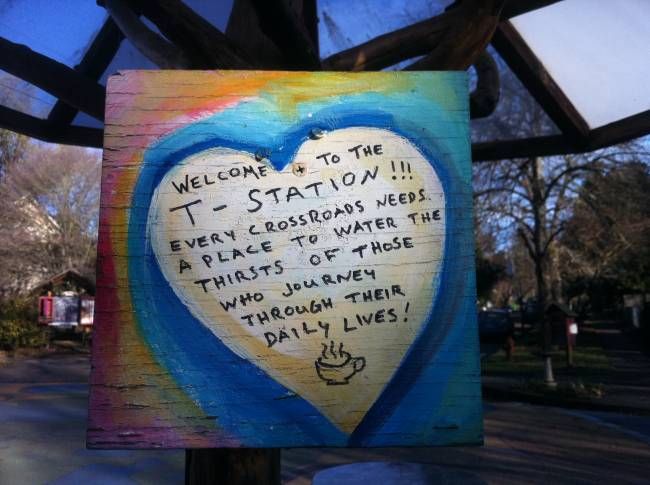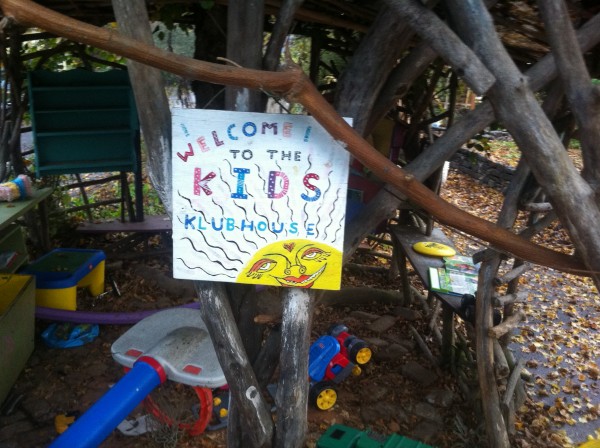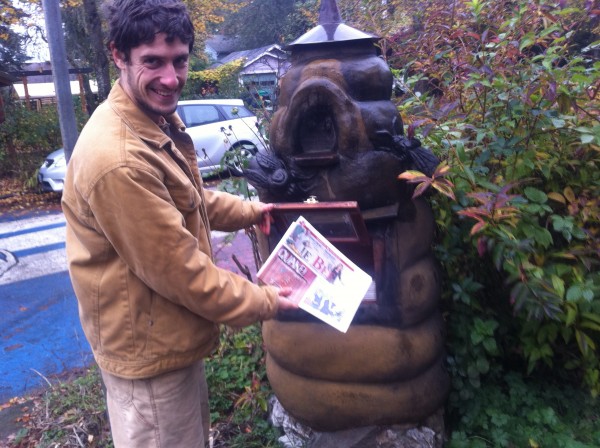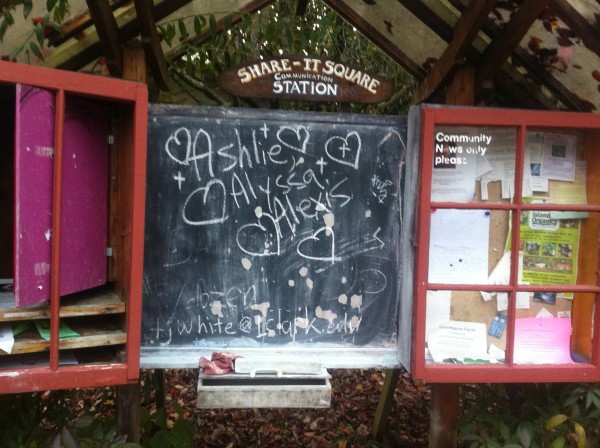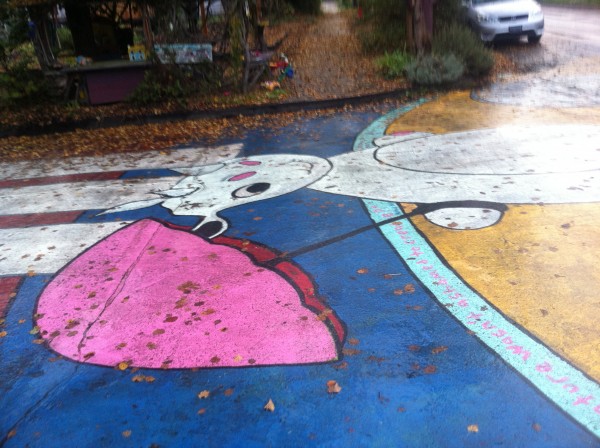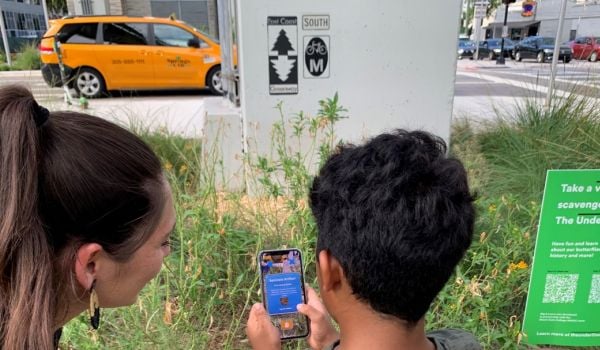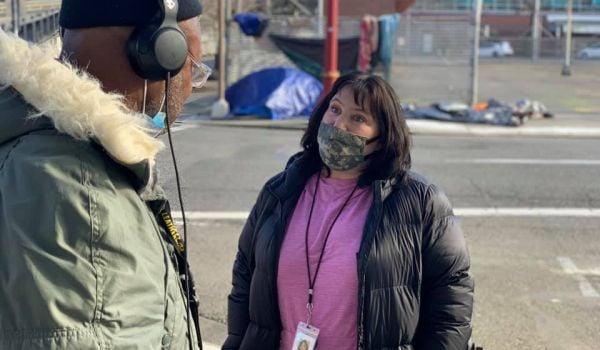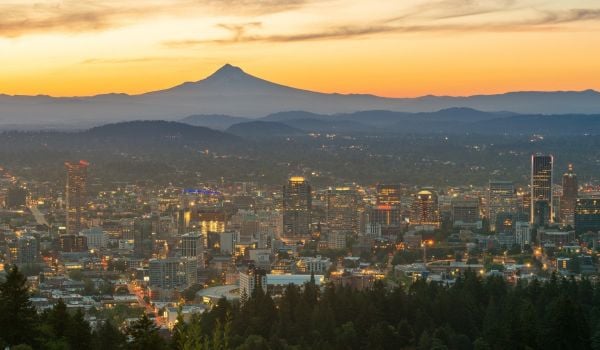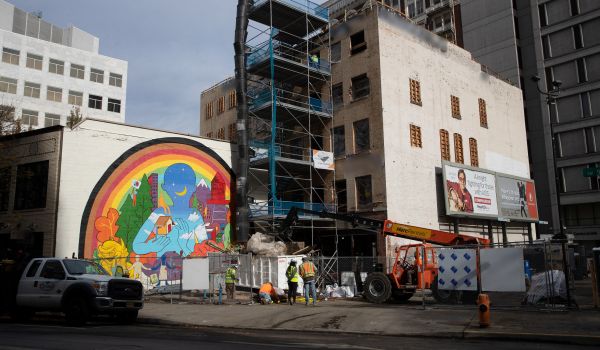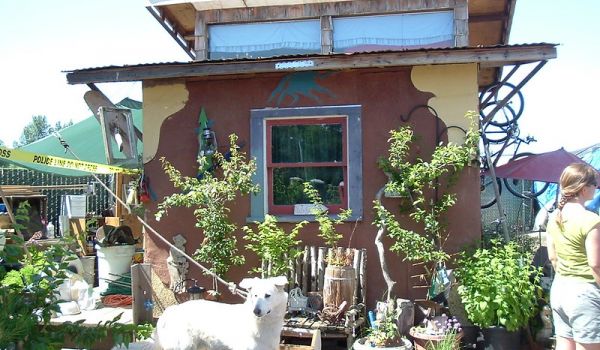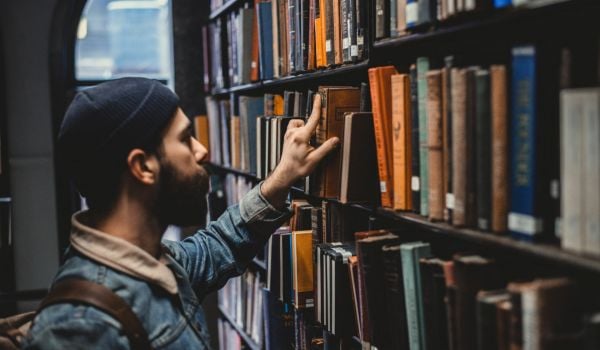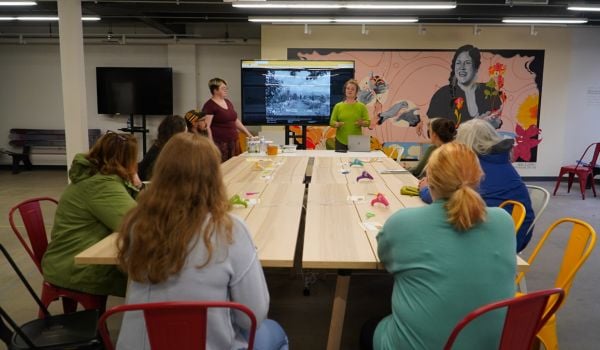I moved to Portland, Oregon, from Washington, DC, a couple of months ago, and I am always on a quest to find interesting sites and places to visit. So I ask everyone I meet the same question: ‘What is your favorite place in Portland?”
On one of these curious quests of mine, one of my Portlander colleagues told me about the project sites of City Repair. I have never heard about City Repair, so I looked at their website and read about them. To quote a part of their inspiring vision: “City Repair facilitates artistic and ecologically-oriented placemaking through projects that honor the interconnection of human communities and the natural world.” Impressed and curious, I emailed them to ask if they could walk me through some of their sites. I quickly received a response from Michael Cook, placemaking coordinator of City Repair, and we agreed to meet.
I met Cook in Sellwood, one of City Repair’s wonderful project sites. As I walked to the intersection site and looked around, I felt connected to where I was for the first time since moving to Portland, in a strange but in a beautiful way. Michael, even in the soaking rain, walked me around the neighborhood showing me every little piece of the project site, from the community chalkboard to the tea house, from the kids’ zone to a sauna. He was so visibly and contagiously excited about everything he was telling me that I felt like I was an ‘Alice’ in a wonderland. And this ‘wonderland’ was real — it was there in front of me, and created by the community itself.
I found City Repair’s efforts so genuine and simple, yet so wonderfully touching, inspiring and efficient in terms of community development. I thought to myself, if every one of us could bring such energy to our street, what would the world look like? Change and beauty starts where we live; we can’t wait around for it to just happen. We need to care, connect, communicate and most importantly hope for it so much that it will inspire and catalyze action within us and within our community. Seeing City Repair’s project site confirmed what I full-heartedly believe in, and I really wanted to tell their story. So here it is, from Michael Cook’s kitchen table over some warm tea in Sellwood neighborhood, Portland.
Neba: Michael, tell me about City Repair and its mission in the context of society.
Michael: City Repair began very simply as a group of neighbors who looked at the situation that they were living in and decided that they were going to take some of their challenges and values into their own hands and come up with creative solutions to make their place the place they wanted it to be. Placemaking. It started when a mother installed a little kiosk where kids could take chalk and draw. Over time other structures were created, like a shelf where people can share books, and a little teahouse on their street to promote connectedness and sense of place. One of the founding ideas of City Repair is that a story is the most powerful tool that humans have. People come together and they embed their own stories and values into physical structures, so that a bench becomes more than a bench, it is a bench with a story. It is through these stories that positive ideas travel and grow.
We are living in a society where so many things are either private or commercialized; everything is owned and not shared. So these little places, so simple and yet so touching, excited a lot of people, and other neighborhoods wanted to replicate this activity in their own way. It was then that the initial group of citizens realized the need to spread their message and the idea of placemaking, and out of that came the organization called ‘City Repair.’ It doesn’t mean repairing the potholes, broken windows or fences, we are repairing the fabric of community.
…and helping people feel connected to the places where they live.
Yes, we are making rich places out of anonymous spaces that have story, history and personality. We believe placemaking is the foundation for the localization of our culture. We need to be connected with our environment if we’re going to survive as a functioning part of it. Placemaking can be seen as the stepping stone towards communities addressing greater challenges. Today we are repairing our block and tomorrow we are repairing our country. It has to start somewhere fundamental. We need to first look at ourselves and heal that first. We are starting with something close to us and as we gain skills, trust and experience so we can start spreading positive change by sharing our story and inspiring others.
What is your relationship with city and government officials? Is it challenging to make things actually happen?
City Repair spent a long time in conversations with city officials and other urban planners in the city looking at the permits, ordinances and codes. We thought about how we can take City Repair’s projects and fit them into existing structures, and also discussed about how we can push the envelope. One of City Repair’s biggest challenges is that we are pioneering new ideas in terms of urban planning, and it takes time and dedication.
Can you give an example?
For instance, during the course of our bike parking shelter project, the City of Portland realized that they didn’t have any rules set up for bike parking shelters in a residential area, because no one had ever tried to build one before. Therefore, City Repair and the City worked together to figure out the details: who would be the ones to permit it, what appropriate dimensions would be, what kind of foundation it needed, etc. In the case of Portland, the Department of Transportation was most receptive to working with us. Other cities have worked with Department of Parks and Recreation. There will always be someone who is most receptive to this type of activity.
What is City Repair’s approach to placemaking and how can communities begin that journey?
There is a process for placemaking that we use, but it is not something you can impose. It is an interesting and tricky process to effortlessly create something that is intentional and collective. It’s like when people look for love, they say ‘I want to be in love’ and they know exactly what they think that means, but how it happens is less explicit and more magical. It happens, but you can’t really explain how. The role of the placemaker is to be observant, aware and perceptive of the built environment and the people around them. Then it’s time to bring people together so that they can connect and start to share their ideas, getting to know each other better in the process.
Placemaking initiatives almost always begin with a community gathering or a potluck. It is human nature that when we are together in conviviality, we share. During a community gathering, neighbors can create community asset maps and figure out what skills and resources are available within the group. With that understanding, they can brainstorm ideas, have design exercises where people sit together to draw and sketch their ideas. At some point they find a common interest. Maybe they really want to plant a garden, build a bench or paint a mural. They can start to identify what will be needed and reach out to individuals, professionals, and organizations to support their vision. The projects themselves don’t have to be very elaborate. Just by going through the process they build social capital in a very simple and positive way. Through creative collaboration, they develop their ability to achieve their goal.
So I would say this to someone interested in placemaking: talk to your neighbors, have a potluck, find out what your community values and what they think the challenges in their neighborhood are. The next step is to find out who wants to do something about it. There will always be a few people who are up to the challenge!
What is your vision for the future of City Repair? What do the newspaper headlines say in your ideal world?
My wish for City Repair is that we reach the point where our story travels so far and wide that the headlines in the newspapers all say ‘City Repair is no more! The communities are doing it themselves.’
As a final note, can you briefly talk about the upcoming Village Building Convergence happening in Portland from May 27-June 5?
The Village Building Convergence is an annual event, where we channel all of our placemaking activity, where people can learn about village design, ecological projects, permaculture, sustainable technologies, etc. It is open to everyone who wants to join, and just through experiencing this event you will learn so much knowledge and build skills that you will be able to take to your own community. To learn more about VBC, please visit vbc.cityrepair.org.

